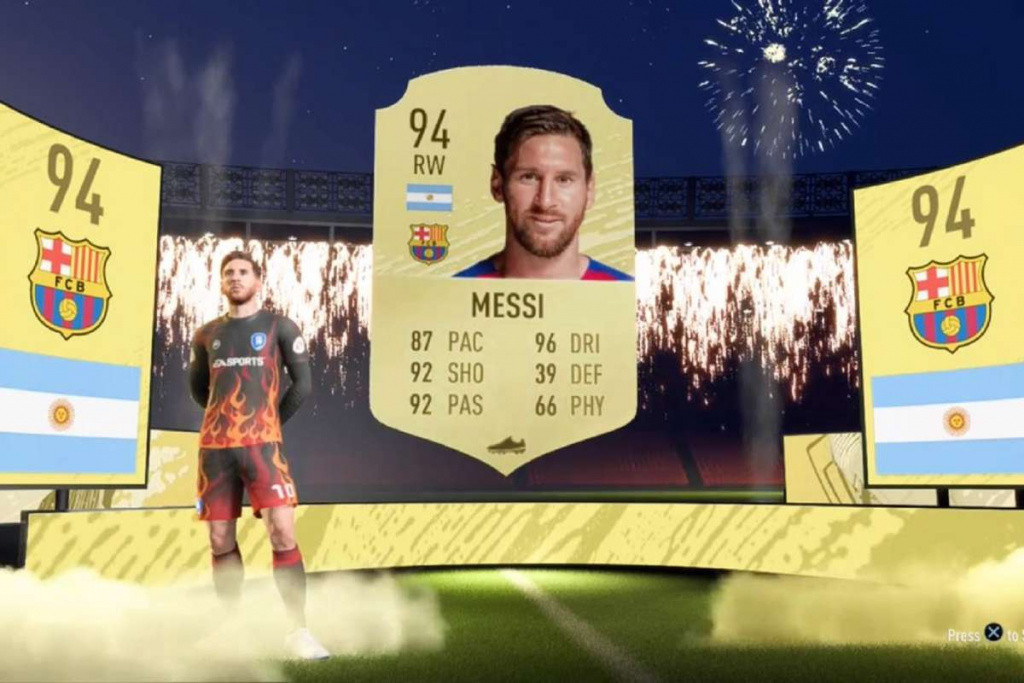EA Sports continues to find itself embroiled in legal disputes just weeks after a class-action lawsuit targetting microtransactions in franchises such as Madden and FIFA was filed in Canada.
(Picture: EA Sports)
While the claim doesn't directly address loot boxes, plaintiffs Jason Zajonc, Danyael Williams, and Pranko Lozano filed a lawsuit in the US District Court of Northern California targetting EA's patented Dynamic Difficulty Adjustment feature.
According to Games Industry, the suit alleges the company abuses this system in games featuring microtransactions, forcing players to invest real money via Player Packs as a result.
What is EA's Dynamic Difficulty Adjustment?
EA's interest in Dynamic Difficulty Adjustment is a matter of public record as mentions of it appear in EA owned patents and in research carried out on behalf of the company by their employees.
In a paper titled "Dynamic Difficulty Adjustment for Maximized Engagement in Digital Games" (which you can read here). DDA is described as "a technique for adaptively changing a game to make it easier or harder," with the end goal of maximizing a "player’s stay time".
Basically, the game adapts to a player's skill, aiming to maintain a level of challenge that keeps them engaged. If it's too hard it will dial it back, too easy and it will increase the probability of losing in an effort to incentivize players.
The implementation of such a mechanic into a game is also public redcord with the aforementioned paper explaining that it was introduced into EA owned mobile game Bejeweled.
(Photo: EA Sports)
The lawsuit looks to prove as fact that EA uses this feature in FIFA Ultimate Team and equivalent game mode in Madden and NFL, it's a claim that EA has repeatedly denied.
The game modes, which see players purchase packs of cards with each card representing a player, are wildly popular. In 2019 FIFA Ultimate Team brought in US$1.4b in net revenue. Critics and goverments have likened it to gambling.
Player's purchase cards in the hope of unpacking better players. (Picture: EA Sports)
The lawsuit states:
"EA's undisclosed use of Difficulty Adjusting Mechanisms deprives gamers who purchase Player Packs of the benefit of their bargains because EA's Difficulty Adjusting Mechanisms, rather than only the stated ranking of the gamers' Ultimate Team players and the gamers' relative skill, dictates, or at least highly influences the outcome of the match."
The suit adds that this practice "benefits EA to the detriment of EA Sports gamers, since Difficulty Adjusting Mechanisms make gamers believe their teams are less skilled than they actually are," thus leading to them feeling the need to upgrade their squads by spending real money.
EA responded to the news of the lawsuit with the company firing back. "The claims are baseless and misrepresent our games, and we will defend."
According to Zajonc, Williams, and Lozano, they believe that the company's actions violate the California Consumers Legal Remedies Act, False Advertising Law, Unfair Competition Law, and qualify as unjust enrichment.
EA has come under increasing pressure over their use of lootbox mechanics, both in the court of public opinion and in a growing number of real world courts too. Belguim banned loot boxes and most recently the Netherlands ruled that Ultimate Team breached gambling laws and gave EA three weeks to remove the game mode or be fined €500,000 a week.
- Read more: FIFA Ultimate Team could be no more as British Government discusses online gambling classification
Despite EA's protestations about the predatory nature of their business model they are making steps to reduce the harm it can cause.
On the 12th of November EA unveiled FIFA Playtime, a new feature that allows players to see how much time and roughly how much money they've spent on the game, and to set limits on both.

 No ads, our video library,
No ads, our video library,




